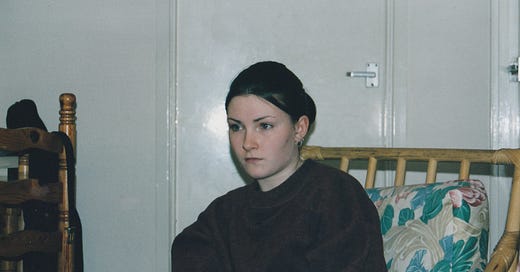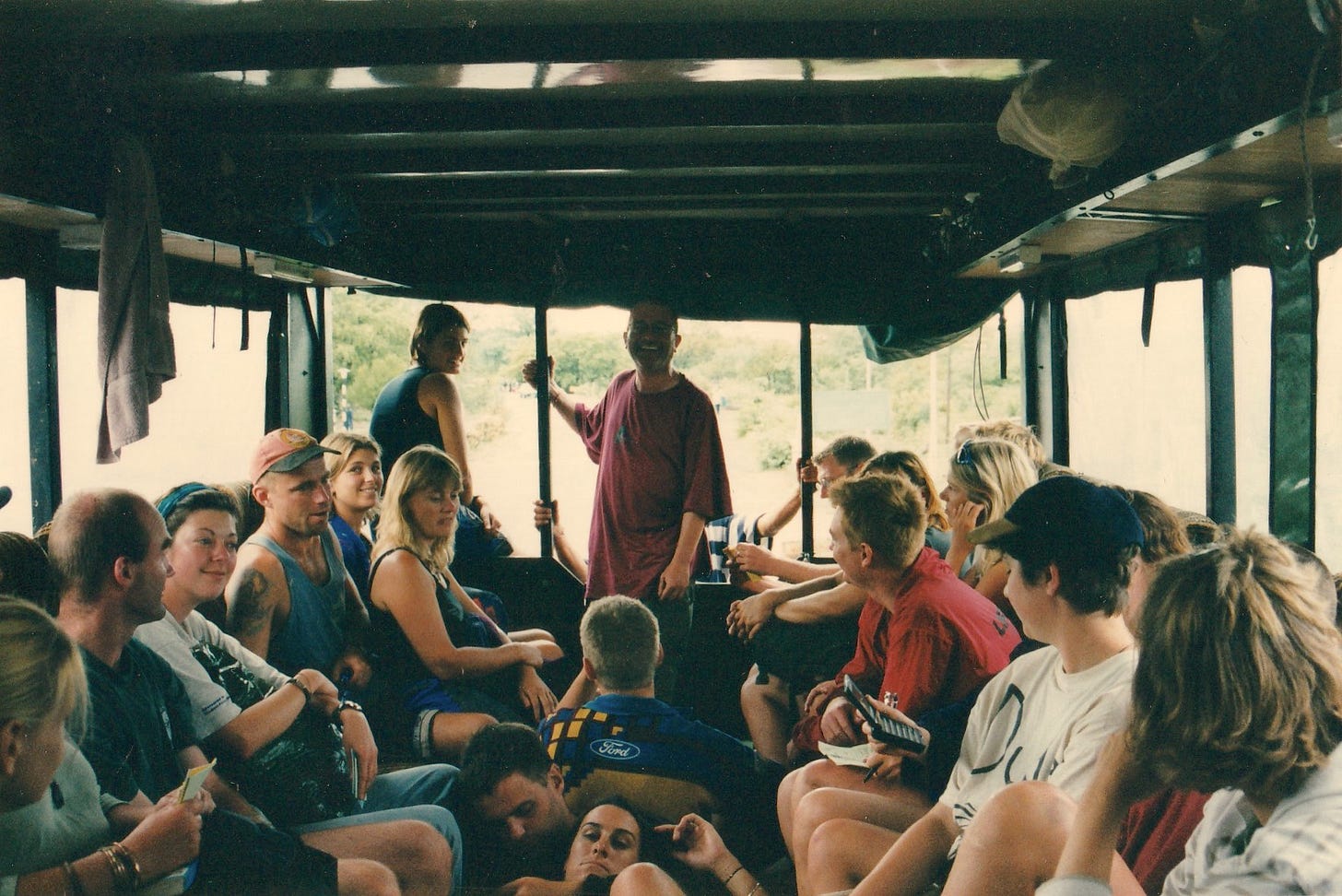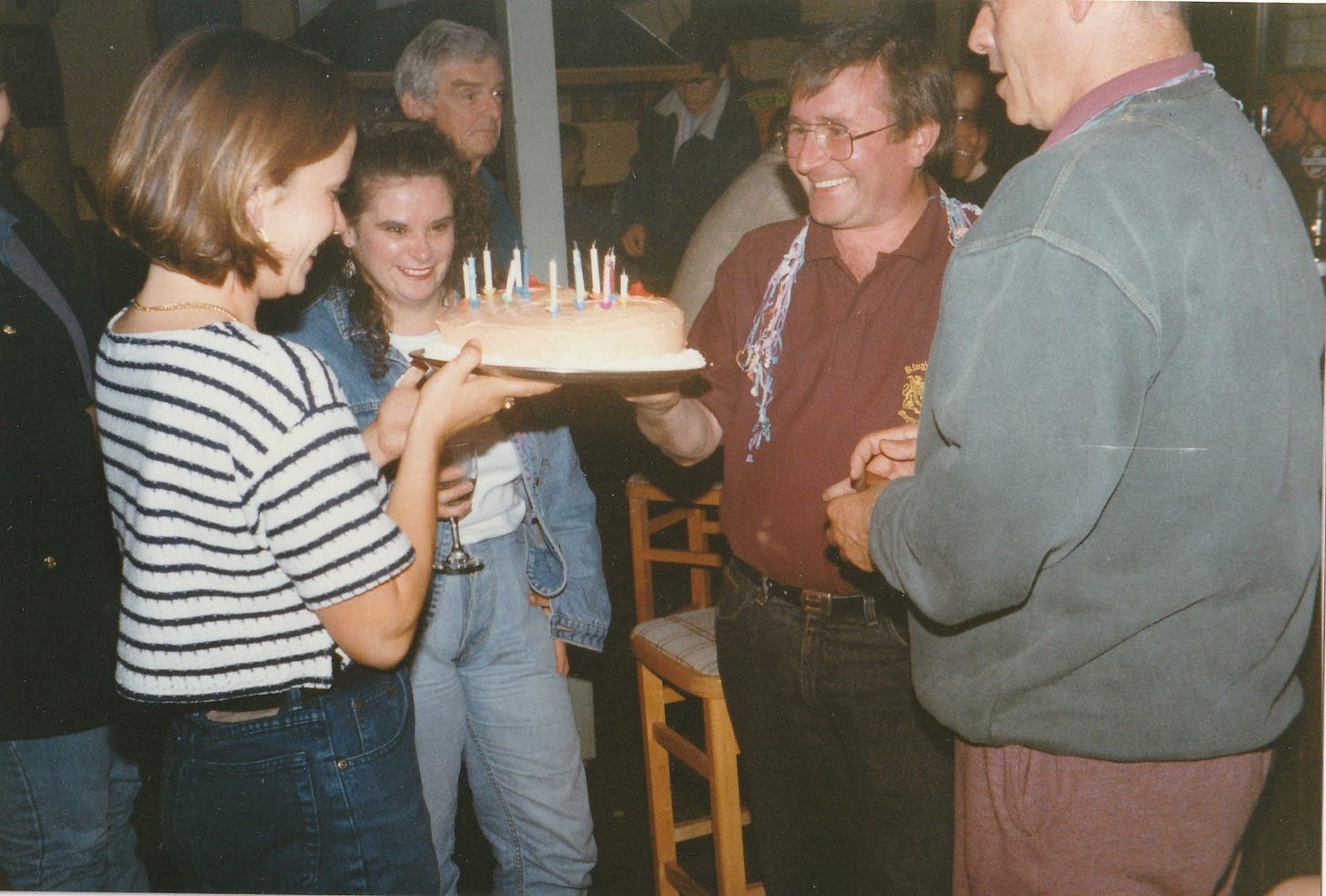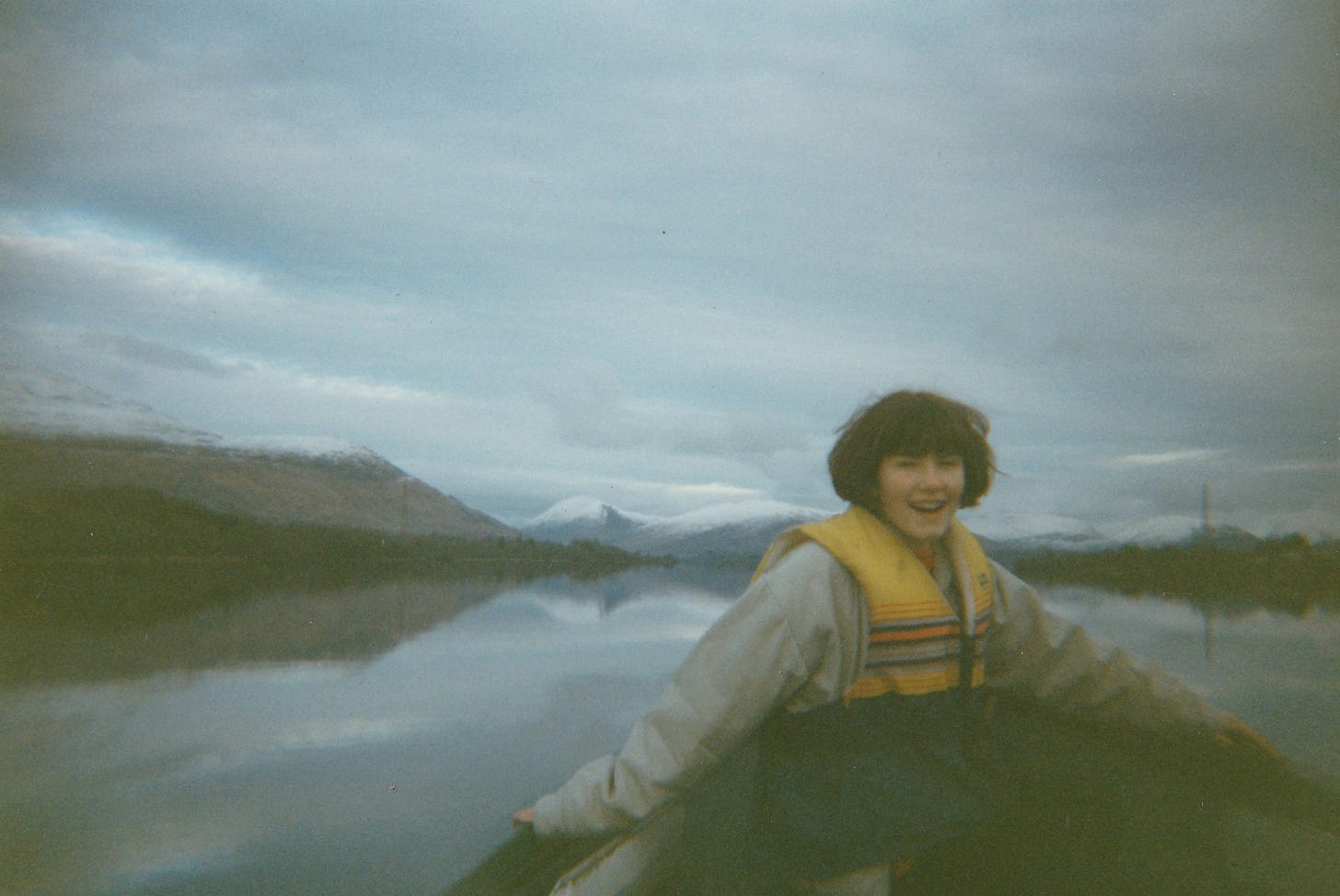The other weekend, we were in Largs at my in-law’s. I’d taken advantage of granny-time and a break in the weather to go for a walk along the shorefront; headphones on as much for ear protection from the howling wind as for a walking soundtrack. I used to do far more of this when the kids were young. A baby in a sling or a toddler in a buggy in need of a sleep offered the perfect opportunity to catch up on my listening.
On a quick scan of recent Woman's Hour episodes, a feature caught my attention. Can writing a memoir ruin your life?
Well, can it?
The writer Kit de Waal was one of the guests. She spoke of the publicity tour for her memoir being - at times - psychologically destabilising, with audience members putting her on the spot about the experiences she’d recounted. ‘That could never have happened to you,’ one man asserted, disputing an episode in the book that described the levels of hunger she and her siblings endured.
‘But it did happen to me,’ she’d argued. So long as her siblings supported her account, she was content, she said.
I find myself wondering whether it’s really that simple.
While I was writing mine, I took advice from various quarters on what to reveal and what to keep back for privacy and relationships’ sake. It meant some hard choices. Whole chunks - tens of thousands of words from my first draft - had to be abandoned. You must write a first draft as though no one is going to read your words, otherwise you self-censor in a way that only serves to sabotage the story. Compromise your truth. But then as the process unfolds you come to realise that revealing too much may serve to put the writer - and perhaps unintentionally, others - in a precarious position.
I’d spoken to my parents and my brother often about this memoir of mine and had their blessing to press ahead, but I’ve long-acknowledged there’s jeopardy in what I’ve done and that my accounts have the potential to reopen old wounds. I’ve encouraged Mum to steer clear of my writing and at the moment that is easy. But what if I do get a publisher? I’ve assured myself that it’ll all be taken care of. My agent has my back. There will be an editor. A sensitivity reader. A legal reader. And in the back of my mind, the words the Scottish writer Kerry Hudson quoted of American writer Anne Lamott to us memoir-scholars on virtual retreat at Moniack Mhor in the pandemic summer of 2021: “You own everything that happened to you. Tell your stories. If people wanted you to write warmly about them, they should have behaved better.”
Yes. But perhaps also, no. Others’ recollections may vary (didn’t expect to find myself paraphrasing the Queen, but hey-ho) and perhaps the facts occupy a space somewhere in the middle. Dad proved this very point to me last spring in a way I hope does not serve to discredit my whole book. We were having a rare family discussion during which I threw up mention of a trip me and my brother took - then aged 13 and 10 - to stay with him over the fallow days between Christmas and Hogmanay 1996. He’d taken a sales job on the Portsonachan estate on the west coast of Scotland and was living on site in a static caravan.
I have two stories I tell about that trip. In the first, it’s late at night and we’ve returned from the hotel’s lounge bar where we’ve been eating crisps and drinking draught coke while Dad’s been holding court amongst a mixture of colleagues and holiday makers. I’m standing in front of him, slumped on the curved caravan settee. He’s bragging about his successful new life, telling me about a woman who’s after him. I’m desperate to get away, but he insists I listen. I’m old enough, he says, for this kind of chat.
In the second story, the three of us are in a dinghy rowing across a freezing Loch Awe, visibility reducing by the minute without a life jacket between us.
I’ve told these stories as examples of Dad’s inadequacies as a parent at that time, confirming the story of my childhood I’ve gotten used to telling. One of unpredictability and mild peril. A childhood that has shaped me; a childhood that I have gone on to triumph over.
I bring up the latter tale as we sit with our cups of tea, emboldened by my brother’s presence. I am trying to find a way to tell him that, though our relationship recovered, there was a lot that was wrong about it as we were growing up. “Sorry,” I said, “I know this is uncomfortable. But this is what happened, Dad.” We’d never before spoken openly about our childhood, and though I knew it was difficult for him to hear, I thought it necessary. Perhaps the talking therapy had taught me to agonise less over my responsibility for others?
Dad let me say my piece but then sought to assure us that we’d been safely kitted out. Life jackets. Flares. Flask of hot chocolate. But, I argued back, that was not my memory and - good natured as he’d become - he acquiesced. Told me I must be right and he was sorry; he didn’t remember much from that alcohol-soaked time in his life.
Four weeks later, he was dead.
With the council needing his flat back, we had little time to process the loss, but plenty of his shit to sort through. On one of those days, I filled my boot with two holdalls containing two dozen or so of those turn-of-the-century plasticated Kodak Advantix boxes. I unloaded them at home after relieving the back seats of yet another load of his clothes at the Barnardo’s (I’d become a regular donor), and started to go through the photos.
I’d had to brace myself for this, given what I’d suspected about his life in the years after my parents separated. He was relative stranger to teenage me, save the odd visit back to Ayrshire. I’d make the occasional trip, too, to wherever in the UK he had taken a job, but nowhere had felt like home.
I started opening boxes one by one. There were the ones from his Africa trips in the winters of 1998 and 1999 where Dad didn’t look at all like Dad. Pictures of him in slogan t-shirts, shorts and open sandals (unheard of in normal times), his shaven head one amongst many. His travelling companions on these trips comprised a ragtag bunch of students and ageing hippies, and he almost-but-not-quite blended in on the cattle bus that transported them for place to place across the south of the continent. It was hard looking into the eyes of this Dad. A man, about the age I am now, running away from his problems and his responsibilities. This Dad was so far from the dad and grandfather he would become in his ‘dotage’.
Then there were pictures of me and my brother; the pair of us at our surliest. They documented a self I didn’t instantly identify with. It’s funny how memories are tied to photographs. That is, the pictures you’re used to seeing of yourself. The ones in the albums or in big tubs in living room units that you take out to flick through at Christmas. Coming across those pictures was different. Discombobulating. When was that? Where were we, then? The Lindsay in these pictures jarred with the version of my teenage self I wanted to believe in. The one who was mostly trying not to make a fuss. Trying to keep my wee brother in check. But it is also true that those visits to Dad were inconvenient; got in the way of my fledgling social life. And I resented him for leaving us with mum. What Lindsay did he remember most from those days, then? The po-faced teenager clearly wishing she was somewhere else, or the placating elder child? I’ll never know.
Eventually, I opened a box from his Portsonachan days to pictures of the 40th birthday celebration his colleagues had thrown for him, complete with a cake in the shape of a massive pair of tits. I had no memory - of course - of him turning 40 and acknowledged that he would miss mine, too. My bin-able pile was ever-growing while the snaps I’d chosen to keep were in a modest stack on the coffee table. Would any of these make the cut?
The photos that followed earned their place. They would serve to teach me a lesson about storytelling, and the need to accept the possibility that what I claim as gospel may be not entirely so. They captured a wee boy, his older sister and their dad taking turns to sit at the bow of a small boat on a calm loch on a winter’s afternoon. The water still; the sky bright. Clear enough to see the snow-capped ridge of Ben Cruachan, Stob Dàimh and the surrounding hills to the north west of the loch. They wore smiles, life jackets, thick coats.
Matthew Syed happened to be talking about this on a recent episode of his Radio 4 programme, Sideways. He started by recounting a turning point in his life on the journey from table tennis champion and unsuccessful public speaker to broadcaster and writer. This is a story about himself he’s used to telling. He’s told it on podcasts, at corporate events and during after-dinner speeches and each time, he got a similar response from the audience. Like we are all wont to do, he found listeners latched on to the ‘journey’ or the ‘redemptive’ nature of the tale. We like neat personal stories. However, the main point of the episode is that someone who had known him in the late 90s recently offered a different version of that time. A version that, on further investigation, turned out to be true.
In Syed’s version, he’d bombed during a speech he was giving to a group of investment bankers at Goldman Sachs and found himself at a crossroads: never speak in public again, or take action. He chose to join the public speaking club, Toastmasters, and within a few short years, he was transformed. However, in reality it wasn’t that simple. The acquaintance proved to him that he had, in fact, joined Toastmasters at least two years before the Goldman Sachs debacle.
So, does he have to stop telling his story? And is he guilty of lying? He decides that he is not guilty, but knowing what he knows now, he can only tell it in the future if he makes the changes. The essence of the story, though, remains the same. He still went from nervous public speaker to successful broadcaster even if the details of the period he recounts occurred in a different order. And so perhaps the same is true in my case? I may have found Dad to be right; I had indeed been wearing a life vest. But at its heart, the story of a girl who could not trust her parent to keep her safe does not change. It remains the central story of my childhood relationship with him.
Our memories are not static. We make them anew - even in just some small way - each time we retell them. And the stories that come from these memories are ours alone. Ours to tell; ours to reshape within reason. Ours to reinterpret to better serve ourselves. It’s ok to tell a new story. If only I’d had a chance to let my dad know I was ready to tell some of mine a little differently.










This really poignant and timely and honest. Thank you Lindsay. I think the best memoirists recognise their own unreliable narration and yet still find a way to hold space for their own truth (as well as sometimes the truth of others). They manage to corral in this tricksy multitudinous thing. For me, good memoir offers the reader universal truth within the heart of personal story and this gives some leverage I think so say 'this is the overall point even though the minutae may vary' - I hope we can trust our readers too to understand the precarity of some memories. All of this is a separate thing to the ethical issues with those in our stories of course but certainly we need publishers to be a lot better at dealing with this than they are, I think.
Your memories left me wanting to read more. And they reminded my of Lily Dunn's childhood and her memoir Sins of My Father, which was "chosen as NON FICTION BOOK OF THE YEAR 2022 by THE GUARDIAN and THE SPECTATOR". She's a founder of London Lit Lab and I've done an absorbing Memoir course with her (online over a few weeks). https://www.londonlitlab.co.uk